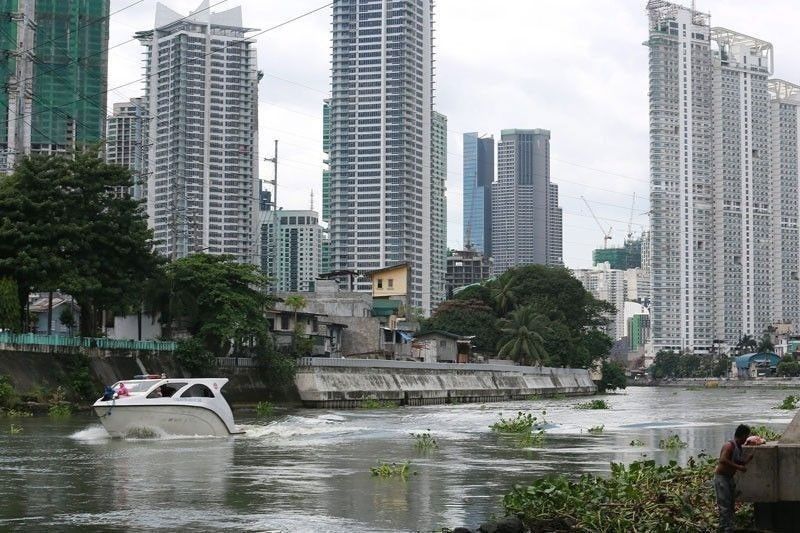DENR: More action needed but state of Pasig River 'a lot better now'

MANILA, Philippines (Updated 5:14 p.m.) — The state of the Pasig River has improved a lot, the Department of Environment and Natural Resources claimed Monday after a study identified the waterway as the river most polluted by plastic wastes.
In a briefing Monday, Environment Undersecretary Benny Antiporda said the government went out of its way to clean up all the rivers and tributaries that drain into Manila Bay, including the 27-kilometer Pasig River.
"Many mitigation efforts have been done. There are a lot of accomplishments. So we cannot accept it saying that Pasig River is Number One all over the world. We still need some more mitigation, we still have people who dump trash into river but it is a lot better now," he said in a mix of English and Filipino.
The environment official was reacting to a study published in the journal Science Advances in April, which identified major rivers in the Philippines as among the largest contributors to plastic wastes that reach the ocean.
Pasig River, which flows through the capital region, topped the list of over 1,600 polluting rivers across the world. The study showed it contributes over 63,000 tons of plastic wastes to the ocean annually.
But the study was not a reflection of the situation on the ground because it used a probabilistic approach and relied on secondary data, Antiporda said.
In creating the global river pollution model, researchers from Dutch nonprofit Ocean Cleanup derived probabilities from physical and environmental characteristics such as precipitation, wind, terrain slope, land use, distance to river, river discharge, and distance to the ocean. These are among the main drivers for the likelihood of plastics reaching the ocean.
DENR said plastic wastes that ended up on rivers from lands may have huge variations during the dry and the rainy seasons.
“This accounts to erroneous results, which is far from what is the current condition of Philippine river systems especially in Pasig River, [where] numerous activities and rehabilitation [have been done] since 2019,” Antiporda said.
“We’re not saying that everything is wrong. Indeed, merong tama. But when it comes to the conclusion, I can categorically say it’s wrong,” he added.
The spokesperson of the department also said if the actions of the government to address the problem of Pasig River were considered, the study would have shown a different result.
According to the DENR, among the “major efforts” to reverse the worsening plastic pollution problem in major waterways include the support for the establishment of Materials Recovery Facilities, closure of over 300 illegal dumpsites and establishment of additional landfills.
There are also thousands of “river rangers” who are cleaning Metro Manila’s heavily-polluted rivers.
“We could have been consulted. We could have been called, or data could be furnished by the government,” Antiporda said.
In 2019, President Rodrigo Duterte abolished the Pasig River Rehabilitation Commission, which was tasked to ensure the rehabilitation of Pasig River to its “historically pristine condition conducive to transport, recreation, and tourism.” Its functions were transferred to the Manila Bay Task Force and the DENR.
- Latest
- Trending
































